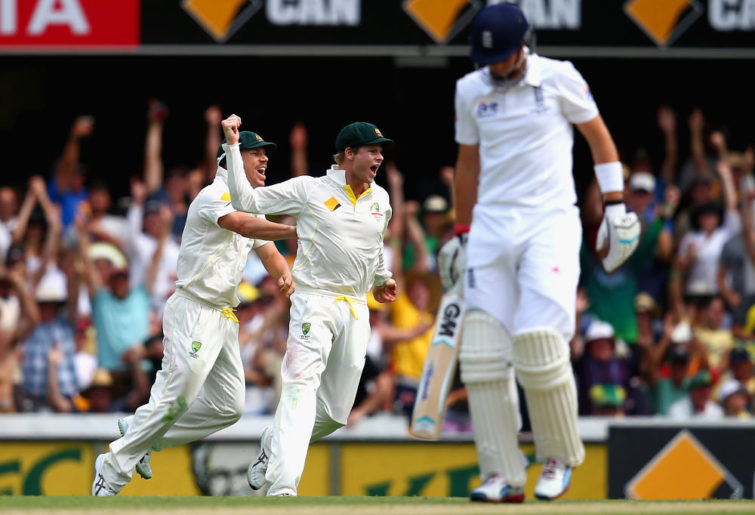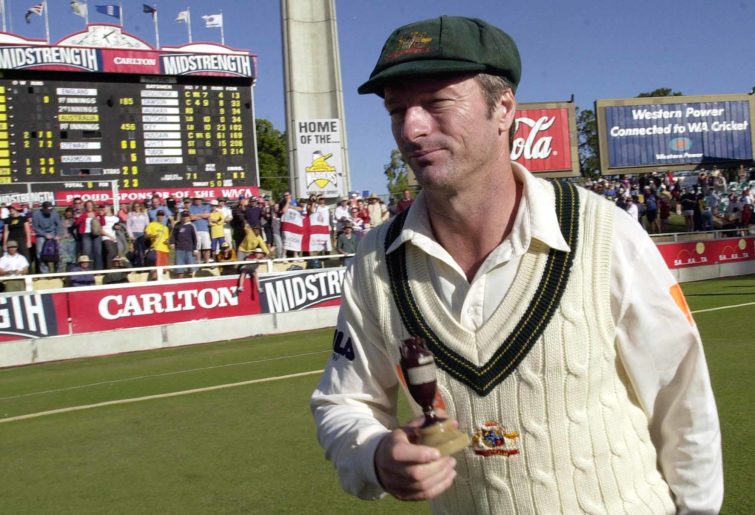World Cup chances up in the air but Smith makes Major call on T20 future, Green dumped despite huge IPL deal
Test great Steve Smith is to play for Washington Freedom in the second season of Major League Cricket as the Australian influence in the…
There can be no mistaking the fact that the state of international cricket is poor.
There seems to be a distinct lack of ‘great’ teams like the early 80s Windies or the dominant teams of the late 90s and early 2000s, teams where greats like Ricky Ponting and the Waugh brothers seemed to dominate almost every opponent they came up against.
Contrary to the current team, these teams had great records with Steve Waugh leading his Australian team to 16 consecutive Test match wins from 1999 to 2001, a feat that was then replicated by Ricky Ponting seven years later.
If you compare these frankly remarkable stats to that of the Australian team in recent years it’s clear that we have an issue with the structure of the team and quite possibly the Australian selectors and development coaches.
In comparison to these incredible world record feats achieved by teams led by Waugh and Ponting, in the last 12 months, the Australian team has won a mere four Tests – one against each of South Africa, India and two against Sri Lanka.
Yes, the Smith and Warner factor is definitively a big reason that the current team is struggling, however, constantly changing the team is just not helping the cause.

Steve Smith and David Warner of Australia celebrate (Photo by Ryan Pierse/Getty Images)
Another big question on many people’s minds is just the severe lack of players in first-grade teams.
As Ricky Ponting mentioned in a recent Big Bash game there were many ‘greats’ and legends of the game who were not good enough to be in the team during these golden eras and were made to work for their spot which is something we just don’t see these days.
One great example of this happening was in the case of Steve Waugh. Waugh struggled consistently and eventually was dropped because of this.
Once he had earned back his place, he came back better than ever, starring in those Tests from 1999-2001 as well as captaining the side.
Waugh’s fight for a second chance and desire to get back into the side is something that might be lacking in the current team.
Due to the number of great players waiting in first-grade cricket, the selectors were not hesitant to drop players like Waugh if they were struggling or weren’t performing at the level they need to.
This is just not something that occurs in the current day as there is a clear gap between the skill level of some of those greats waiting in shield cricket and those waiting today.
I think because of this, the mindset of some of the players in the team is that they will simply be picked because of what they have done despite struggling at times because there really is no replacement. And this mindset is something that needs to change.

Australian captain Steve Waugh looks over the moon to have retained the Ashes. (AP Photo/Rick Rycroft)
Possibly the hottest point of discussion in this topic is that of the selection process and the selectors themselves.
In a recent article posted by The Roar, author Dane Eldridge recently said, “While once left to survive on the banality of run rates and averages, we now know who boasts the lowest strike rate on the leg-side against left-arm finger-spin at the MCG in an election year, and what day Australia is scheduled to lose”, he then went on to talk about the “new breed of stats” in the game and how this could be affecting the selection process.
Possibly the best example of this in the current day is the non-selection of Matthew Wade.
Before the Test series against India, Wade topped all charts in the Sheffield Shield, averaging nearly 65, streaks ahead of anyone else and yet despite this consistency in both the short form and the longer form, has not been selected for Australian representation.
This would have been unheard of in previous years.
It seems there has been a real shift in how players are selected, a mindset that switched from looking at averages to looking at finer details and stats that many argue don’t matter when it comes to winning games of cricket.
While Australia struggles in the last 12 months is one of the best examples to emphasise this point, it is not the only international team to come under scrutiny.
The unbeatable West Indies of the ’70s, ’80s and ’90s has dropped off significantly and there really isn’t too many signs that they will get back to that incredible era any time soon, if ever.
Recent Test series’ against England have shown some improvement however England themselves has had to come under the microscope for the same reasons.
While the Windies great teams were decades ago, England’s late 2000s team featured some of the biggest names in modern English cricket. Players like Mike Vaughan and Paul Collingwood were among many more to be featured in this dominant era.
This era was also when we first caught glimpses of players like Alastair Cook and the emergence of stars like Jimmy Anderson.

Alastair Cook celebrates reaching 200. (Photo by Morgan Hancock/Action Plus via Getty Images)
It seems, a decade on, these great players have simply retired or are on the verge of doing so. While English stars like Joe Root have been unearthed, they haven’t been able to put together a squad anywhere as good as that of the mid to late 2000s.
The 2005 Ashes win by England was one of the most historic series victories in history, however, compared to the shattering 2018 Ashes series, it’s clear that the English team has suffered a lot.
That famous victory was against a still star-studded Australian team and was the first Ashes victory in 16 years.
The Australian team has also suffered great losses and they too have not been able to put together a ‘great team’ however England still managed to lose a 4-0 in the most recent series, just over a decade on from the famous mid to late 2000’s team.
Because of the mind-sets of both players and staff, structure and overall lack of ‘great’ players, these once great nations have suffered.
Just a few decades on from this golden age, the time of the dominant nation has ended. All cricketing nations need to step back and look at their mindset, development and grade cricket structure and if they do, we just might see a resurgence of future stars like Ponting, Brian Lara, and Vaughan.